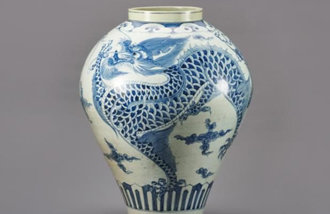Free trade deal with Colombia
Colombia is named after the Italian explorer Christopher Columbus, who introduced the American continent to Europe. In the early 19th century, the Latin American country was referred to as colonies on the American continent ruled by Spain and Portugal, and effectively covered the entire continent. The term "Republic of Colombia" was first used in 1886 to refer to the country situated in the northernmost region of Latin America. Columbus sailing diary had no record of him landing on what is present-day Colombia, however.
Koreans mostly know about Colombia through its coffee. Coffee is the top Colombian import in Korea. By import volume, Colombian coffee products account for 30 percent of Koreas overall coffee imports. Colombian coffee offers a rich and aromatic flavor. Even in coffee products produced by mixing a wide variety of coffee beans, they always include coffee beans from Colombia. Those who enjoy coffee can hardly afford to shun the Colombian variety.
Korea and Colombia concluded free trade talks Monday. If free trade deals with developing countries including Chile, Singapore, and member countries of the Association of Southeast Asian Nations can be considered the first round of Korea`s conclusion of free trade agreements, ultra-large accords with large trading blocs including the U.S. and the European Union can be seen as the second round. Seoul has concluded free trade talks with Bogota while seeking similar deals focused on "actual gains" with Peru, Turkey and Indonesia in the third round. Korea`s agreement with Colombia will remove tariffs of 2-8 percent on Colombian coffee in three years. Koreas main exports to Colombia include cars and auto parts. Tariffs as high as 35 percent will be scrapped within 10 years. Moreover, Colombia is not only a coffee exporter but also a promising oil producer. Given Colombia`s rich deposits of natural resources, Korean companies dealing in energy and natural resources are also advancing into the Latin American country.
Korea is emerging as a free trade powerhouse, with its agreement with Colombia being Koreas 10th of its kind. Brisk trade will increase overall productivity in the economy, create jobs, and elevate income levels through the international work distribution mechanism. Free trade cuts price levels and enhances the quality of products consumed, thus improving the quality of life for the people. Yet prices can remain unchanged despite tariff cuts due to greedy importers who seek to monopolize the benefits of free trade. Foreign companies that forced Korean retailers not to lower domestic sale prices despite the removal of tariffs have been caught and fined by the Korean Fair Trade Commission. Economic players can ensure a win-win situation only if they share the gains of free trade.
Editorial Writer Heo Seung-ho (tigera@donga.com)







